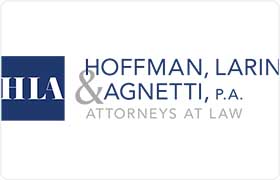Miami Bankruptcy Lawyer, Florida, page 7
Sponsored Law Firm
-
 x
x

Click For More Info:
-
Hoffman Larin & Agnetti, P.A.
909 N Miami Beach Blvd Suite 201 Miami, FL 33162» view mapBankruptcy and Debt Experience and Results Matter
Hoffman, Larin & Agnetti have offices in South Florida. We have a long list of satisfied, well-represented clients since our firm opened in 1975.
800-893-4280
Includes: Bankruptcy Litigation, Commercial Bankruptcy, Consumer Bankruptcy, Dissolution
Dolores Pa San Giorgio
Social Security, Family Law, Immigration, Bankruptcy
Status: In Good Standing Licensed: 25 Years
Ronald Pendl Gossett
Alcoholic Beverages, Banking & Finance, Bankruptcy, Bed Bug
Status: In Good Standing
Peter Kneski
Alimony & Spousal Support, Criminal, Banking & Finance, Bankruptcy
Status: In Good Standing Licensed: 45 Years
Manny Singh
Bankruptcy, Banking & Finance, Merger & Acquisition, Credit & Debt
Status: In Good Standing Licensed: 39 Years
Paul Kneski
Alimony & Spousal Support, Criminal, Banking & Finance, Bankruptcy
Status: In Good Standing Licensed: 46 Years
Robert A. Stok
Real Estate, Dispute Resolution, Corporate, Bankruptcy
Status: In Good Standing Licensed: 34 Years
Robin Lageorgia Bodiford
Wills, Trusts, Estate Planning, Bankruptcy
Status: In Good Standing Licensed: 36 Years
Jessica K Ramm
Commercial Real Estate, Estate Planning, Bankruptcy, Banking & Finance
Status: In Good Standing Licensed: 14 Years
 Martin Hoffman Miami, FL
Martin Hoffman Miami, FL
